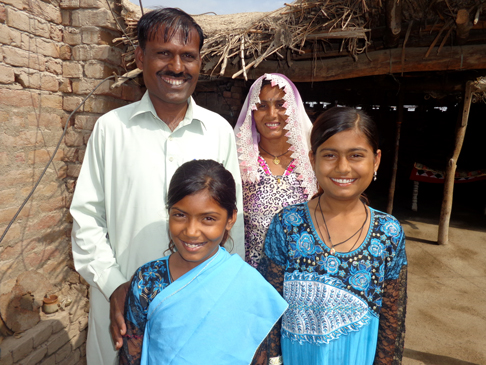The Department of Foreign Affairs and Trade (DFAT) released the Gender equality and women's empowerment strategy on 29 February 2016 in the lead up to International Women's Day. The strategy applies to DFAT and other Australian government agencies delivering Official Development Assistance (ODA). The strategy outlines why and how we work on gender equality and women's empowerment in foreign policy, in economic diplomacy and aid for trade, in the aid program, and in our corporate and human resource policies.
Putting good gender policy to practice was thoroughly examined in the 2014 Thematic Review for the Australian NGO Cooperation Program (ANCP) focused on the theme of gender equality and women's empowerment that was released on Friday 4 March 2016.
Designed to facilitate collaborative learning, the Review's purpose was to provide an insight into how gender equality and women's empowerment is addressed in ANCP supported projects in Timor Leste and Vanuatu; and identify opportunities for shared learning to better target gender equality and women's empowerment.
The key findings indicated that ANCP NGOs most able to demonstrate a contribution toward gender equality and women's empowerment were those presenting a strong organisational (internal) commitment and operational framework for actioning gender in their (external) programming. However, a number of challenges were identified including, translation of gender terminology in certain contexts, familiarity with gender tools, challenges for faith-based organisations, and unrealistic timeframes and expectations to achieve change in gender equality and women's empowerment. The 'ways forward' section articulates actions to help address these issues for ANCP NGOs and the broader NGO sector.
Roundtables will be held with DFAT and NGOs in Timor Leste and Vanuatu around International Women's Day to discuss the key findings and progress the actions coming out of the review report.
In 2014-15, 85 per cent of ANCP projects addressed gender issues with gender equality as the principal objective in 108 projects (17 per cent) with expenditure of over $18.6 million reaching 1.4 million people, which is consistent with 2013-14 results.
There is confidence in each ANGO's ability to deliver gender equality outcomes, for example, the case study of TEAR's work in Pakistan is delivering transformative change for women and girls.
Case study
Lachhmi, along with her husband and two daughters (Sangeeta and Saveeta), lives in Mirpurkhas, a marginalized rural area of Sindh province, in Pakistan. As members of the minority Bheel community, their culture and customs tend to favour boys – partly because boys are responsible for supporting their parents into old age. Traditionally, girls are not educated.
As a family with no sons, Lachhmi used to worry about their future. Ten years ago, her husband had no job. She says:
"Our financial situation then was very bad and I was very worried for the future of my daughters."
Since engaging with the Primary Education Project (PEP), the family's situation has improved dramatically.
In 2004, PEP opened a school near their home, and Lachhmi made the bold decision to educate her girls. In 2006, Lachhmi's husband became a teacher at the school, and now he is the Area Coordinator, responsible for 16 schools.
At the PEP schools, training is also provided for teachers and community, and Lachhmi herself has benefited from awareness-raising training. She says:
"I am very happy that both my daughters are studying in the PEP school. I have only two daughters and no sons, but I don't need any son because my daughters are equal to a son and they are enough for me."
Lachhmi has become an advocate for girls' education in her neighbourhood, persuading her relatives in a nearby village to let their daughters come to live with them so they too can go to school. She is very thankful:
"PEP has given a job to my husband and opened a school in our colony, on the doorstep. Our mindset has changed, we have been given hope of a future for our daughters. Now I can see a bright future for my daughters and others girls in our community who are now also going to school."
Credit: Diocese of Hyderabad Primary Education Project

